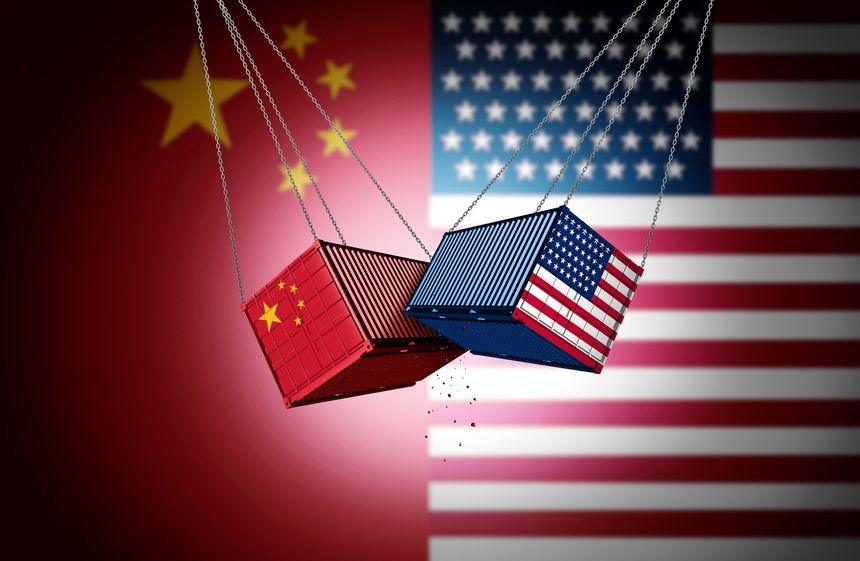Today, the Office of the U.S. Trade Representative (USTR) initiated an investigation under section 301 of the Trade Act of 1974 into China's implementation of commitments under the Phase One Agreement, which was negotiated during the first Trump administration and entered into force on January 22, 2020. Sec 301 China Phase One Initiation FRN 10-24-25.pdf While not entirely surprising, the new investigation does bring a couple questions to mind. First, the notice announcing the new investigation and inviting public comment makes no mention of the dispute resolution provisions in the Phase One Agreement. Those provisions are set forth in Chapter 7 of the Agreement. They are introduced in Article 7.1 by a statement explaining that their purpose is “to resolve issues in the economic and trade relationship of the Parties in a fair, expeditious, and respectful manner, and to avoid the escalation of economic and trade disputes and their impact on other areas of the Parties' relationship.” The Phase One Agreement dispute resolution provisions are relatively short on detail. They do not provide for third-party adjudication, instead relying on consultations to be held at different levels of the two governments. Moreover, they appear to provide an optional mechanism for dispute resolution rather than a compulsory one. Thus, under Article 7.4.1, an aggrieved Party “may submit an appeal” to the relevant office of the other Party. Still, it is surprising that in announcing an investigation into China's alleged failure to comply with commitments under the Phase One Agreement USTR gives no indication of any attempt to address its concerns through the very dispute resolution mechanism provided for in that Agreement. It is especially surprising given the stated rationale for having that mechanism in the first place. The closest the announcement comes to anything like that is an oblique reference to “U.S. engagement with China to address these implementation concerns over the last five years.” Has dispute resolution in accordance with the terms of the Agreement been attempted? Does USTR intend to invoke that mechanism now? Does it consider doing so to be futile? The announcement does not say.
The second unusual aspect of the new investigation is that it purports to launch a new section 301 process even though the complained-of conduct appears to relate to an earlier-initiated section 301 process that is still open. As today's notice explains, the Phase One Agreement grew out of a section 301 investigation launched on August 18, 2017 into China's acts, policies, and practices related to technology transfer, intellectual property, and innovation. That investigation culminated in the Phase One Agreement and underwent a four-year review starting in May 2022.
Section 306 of the Trade Act of 1974 provides for USTR's monitoring of the implementation of agreements and other measures undertaken to resolve a matter that was the subject of a section 301 investigation. Section 306(b)(1) expressly provides for the circumstance in which USTR “considers that a foreign country is not satisfactorily implementing a measure or agreement” put in place pursuant to a section 301 investigation. In that case, the USTR must determine “what further action” to take.
In view of its determination that China has failed to implement commitments under the Phase One Agreement, it would seem USTR could have exercised its authority under section 306(b)(1). But rather than do that, USTR has launched a brand new section 301 investigation. Why it has opted to do that remains unclear.
Undoubtedly, more questions will arise as this new investigation unfolds. These are just two prompted by today's announcement.


/Passle/678abaae4818a4de3a652a62/SearchServiceImages/2026-02-13-21-46-31-329-698f9bb78f0cdb1aeca2030e.jpg)
/Passle/678abaae4818a4de3a652a62/SearchServiceImages/2026-02-20-22-58-58-511-6998e7329e22a2a4c3b9e50e.jpg)
/Passle/678abaae4818a4de3a652a62/SearchServiceImages/2026-02-20-22-54-01-636-6998e609ce035ff86e64da97.jpg)
/Passle/678abaae4818a4de3a652a62/SearchServiceImages/2026-02-20-15-53-10-707-69988366951558a8433707f3.jpg)